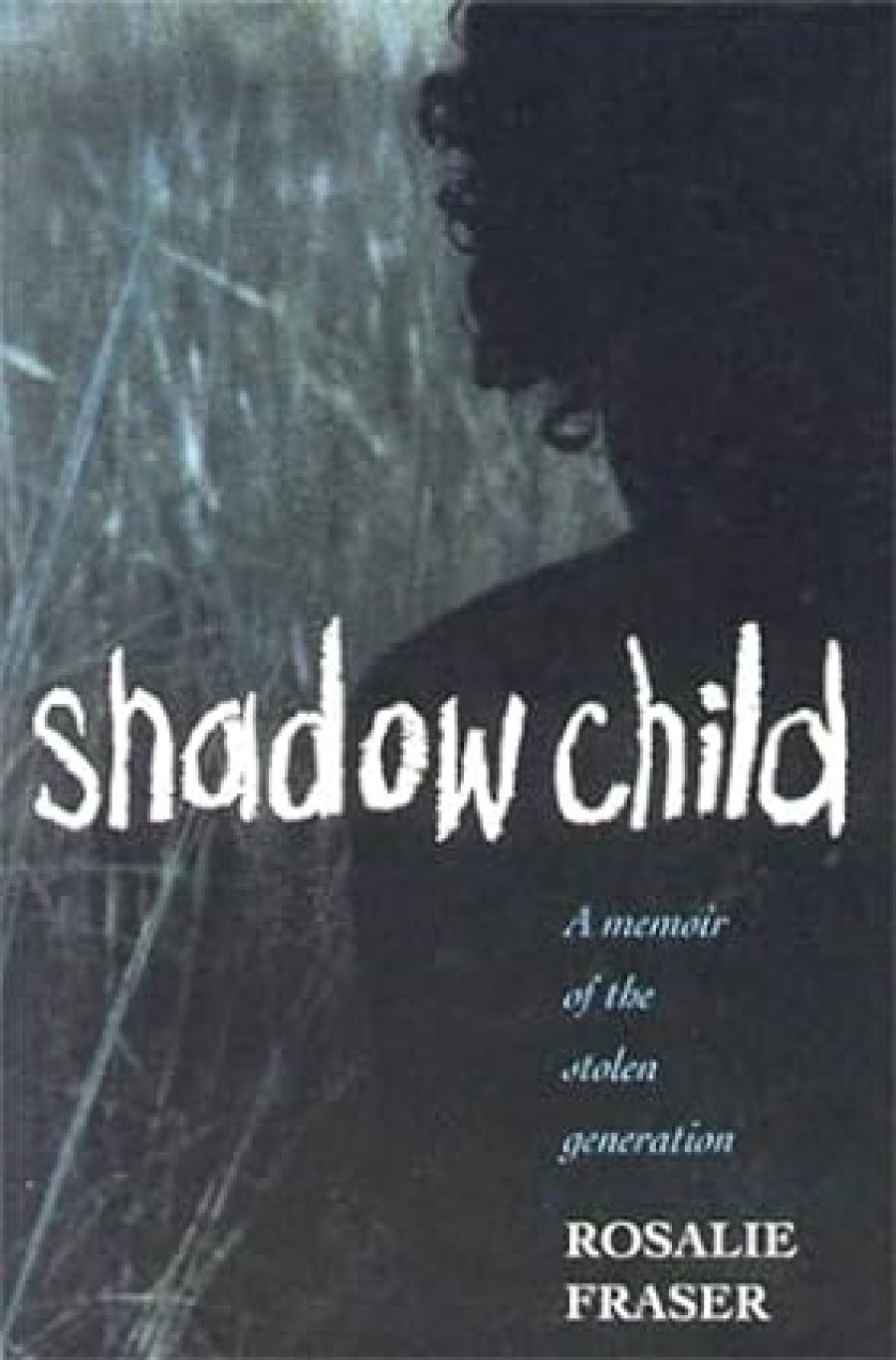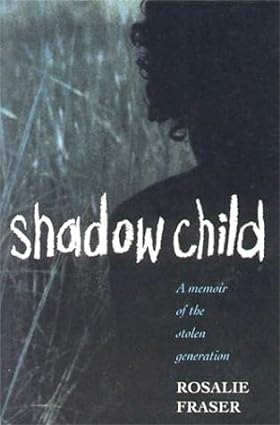
- Free Article: No
- Contents Category: Memoir
- Review Article: Yes
- Article Title: Levels of abuse
- Online Only: No
- Custom Highlight Text:
Rosalie Fraser, a two-year-old Aboriginal child, is taken from her family by Child Welfare authorities and fostered with a distant relation of her non-Aboriginal father. She suffers years of abuse at the hands of her foster mother. Occasionally she runs away but her foster mother is always able to charm her into returning. She finally leaves for good when she meets a young man named Stan whom she later marries. In her mid-twenties a gynaecological operation which becomes unexpectedly complicated and painful causes flashbacks of the abuse she endured as a child and she realises she has to confront her past. She writes Shadow Child and in conclusion recommends writing as a therapy for anyone ‘who has problems to come to terms with’.
- Book 1 Title: Shadow Child
- Book 1 Biblio: Hale & Iremonger, $16.95 pb, 270 pp
- Book 1 Cover Small (400 x 600):

- Book 1 Cover (800 x 1200):

Well and good, we might say. The author’s achievement is self-evident. She rose above the trauma of her childhood to create a family life and overcame literacy problems in order to write Shadow Child. On the surface this would seem a comfortable read: the life-narrative road has been travelled before by Indigenous writers and we recognise the stops. There are detailed descriptions of family relationships and their modulations; we learn about the lives of the author’s children; about changing jobs and changing residences, childbirths and Aboriginal spirituality (though these visions and illuminations can have an eccentric quality, as when an evil spirit appears in the form of a beautiful puppy dog, for instance). But notwithstanding the familiar genre this is an unsettling book. Therapeutic for its author, it leaves the reader with misgivings and anxieties. These relate to two issues: first, the disturbing subject matter, and second, the relation of writing to the social world.
Shadow Child is specifically grounded in questions of child welfare and child abuse. While an unhappy childhood has been described as good training for an author, the grossly abusive childhood is not so flippantly dealt with. At this moment there are untold numbers of child soldiers, child prostitutes, and child labourers all around the world. On a micro-level cases of sexual and physical abuse of children continually come to our attention. How can these realities be represented, and more tellingly, imaginatively transformed so that people are willing to listen? The careless representation and discussion of these cases seem sometimes as abusive and exploitative, in their own sphere, as the practices they expose and deplore.
There are several levels of abuse in Shadow Child. The State institutes impersonal forms of objectification, as surveillance, evaluation and dossier-keeping are implemented by anonymous people doing their jobs. It is in the confines of the author’s foster family that personalised abuse occurs. The perpetrator is the author’s foster mother, and the fact that she fulfils the dual role of nurturer and torturer means that it is not an easy task for Fraser to disengage emotionally. Fraser provides a compendium of forms of abuse extending from systematic beltings to cruel violations of a sexual nature. One dreadful act in particular, if proven in court would have brought its perpetrator many years’ imprisonment.
This leads to my second point: the relation of writing to the social world. The revelatory life narrative’s demand to be believed can sometimes be more than a reader is able to sustain; but to withhold assent to the facts we are told in Shadow Child is to replicate the behaviour of the welfare officials Fraser describes in her book. If we stayed within the parameters of conventional reading practice and accepted the book as another story of personal triumph against overwhelming odds everything would be a lot simpler. We could gloss over the more extreme instances of abuse and in doing so transform life narrative into another form of irresponsible, aestheticised writing. But in this case the seriousness of the author’s allegations demands a serious response. If there is an aspect of juridicism in this it is unavoidable, for here it is less a question of affirming the author than making sense of what she is saying. The foster mother’s more mundane forms of ill-usage might be explained as the actions of an overworked, frustrated woman with too many children and too little money. One is at a loss to understand the sexualised forms of abuse, assuming that this would have been a pattern of behaviour manifested elsewhere and thus exposed.
If writing is to be more than a ‘category of irresponsibility’, it is necessary to accept that the author’s allegations of criminality have social consequences: first for the alleged perpetrator who is now dead and cannot defend herself against the allegations; and second for the community which through its medical and social welfare operatives allowed the abuse to happen. The principle of coronial inquests recognises the community’s reasonable right to know. The allegations in Shadow Child also make the same demands.


Comments powered by CComment